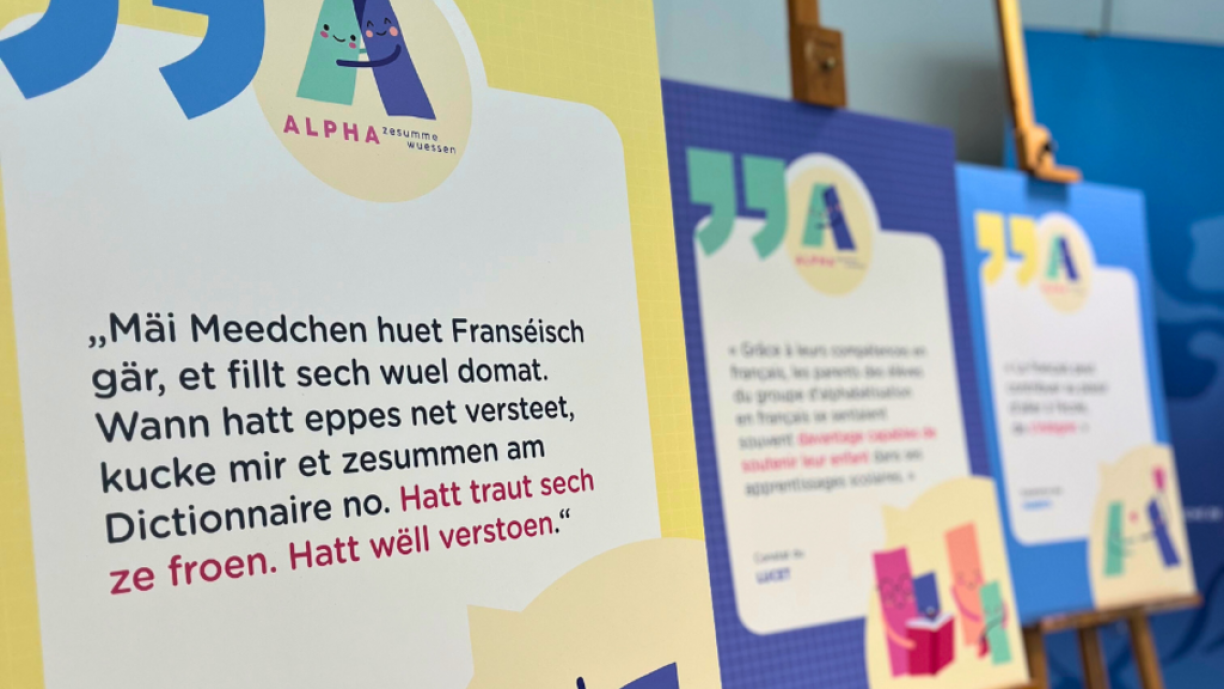
Starting in 2026, parents will be able to choose whether they want their child to become literate in French or German. This means that children are going to be categorised into different groups for language and mathematics classes. Other classes will be mixed.
In the context of “Project Alpha,” four schools trialled and evaluated the effects of French literacy programmes over the course of three years. Their conclusion: Introducing literacy in French is beneficial across Luxembourg primary schools, for instance in strengthening Luxembourgish on campus.
Minister of Education Claude Meisch emphasised that the resurgence of Luxembourgish fortified the decision to introduce French literacy:
“We have a diverse and heterogeneous school population. There are roughly one third of pupils who speak Luxembourgish or German at home. However, we are maintaining an educational system that is 100% tailored to that minority. Thus we are doing something for the other two thirds who speak French or Portuguese at home, by offering literacy in French.”
One major advantage consists of the systematic strengthening of the Luxembourgish language, explains Luc Weis, head of the coordination service at SCRIPT.
“First of all, the Alpha project gave Luxembourgish more meaning again, as it is the main language for teaching secondary subjects,” Luc Weis elaborates. “It creates an impression of linguistic security, because the pupils can switch between languages. That is an enormous advantage of our project”.
Other advantages include social cohesion and a solidarity within the class thanks to the interchange of languages. Pupils are learning in an environment with a language they feel safe in, which heightens participation in class. From September 2026, the project should be running in all primary schools, asserts Minister Claude Meisch.
Claude Meisch mentioned that “the evaluation report clearly foresees a preparation period for teachers. In addition, we need to include parents, inform them of their role within the new literacy project. Communal authorities are also a part of it, as they will be in charge of administrative questions. The system is expected to require more organisational effort, yet the report shows that it is worth following that path.”
The primary ambition behind Project Alpha consists of giving each pupil in a Luxembourgish primary schools equal educational opportunities. Therefore, future endeavours foreshadow a focus on international public schools.
144 children and four pilot schools in Differdange, Dudelange, and Larochette took part in the project. Even after the trial period, these four schools have maintained literacy in French.